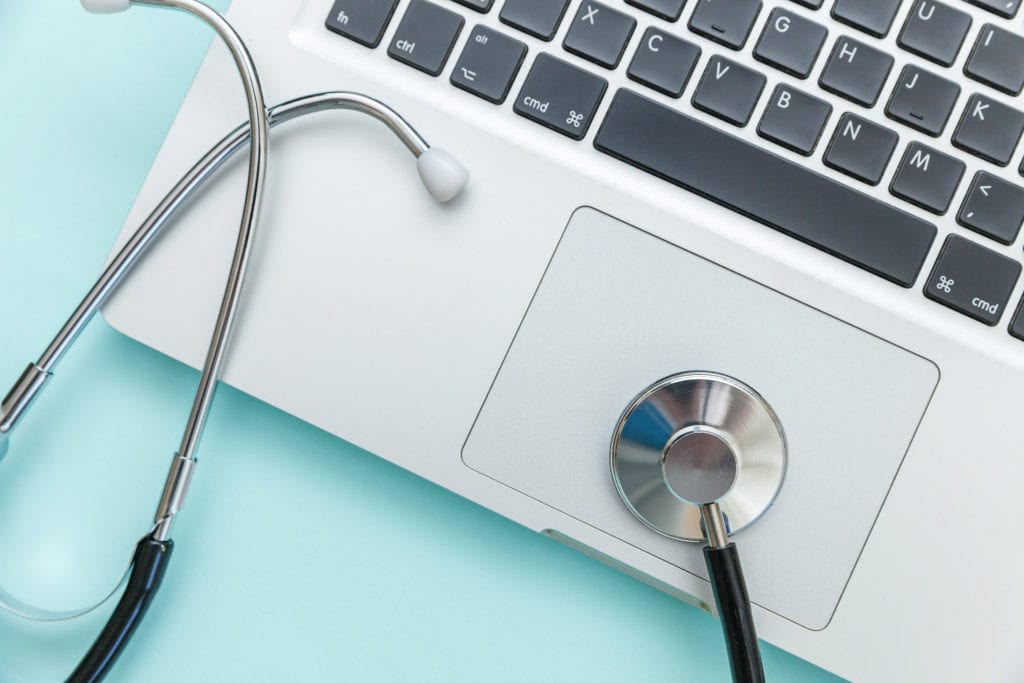
Struggling with a slow computer is one of those constant sources of stress. It may be fine for a while, then you begin getting that spinning wheel or hourglass and your temperature rises.
People often struggle with a slow computer for a while before doing anything about it. Either they don’t think it’s “broken” enough to take in for computer repairs or they don’t realize there are some things they can do themselves to help.
Computers can begin to slow down for multiple reasons. Sometimes it can be age related, sometimes it’s from trying to do too many things that the PC wasn’t built for.
A slow computer isn’t only frustrating, it can also mean lost productivity. Knowing some speed tweaks to fix a sluggish computer can save your sanity and help you get more done.
Here’s What May Be Causing a Slow Computer & What You can Do About It
Software Updates are Taking Over
There are certain types of software that tend to bring computers to a screeching halt when they update. Adobe programs are a known culprit, but there are others as well.
You can solve this problem by taking your software updates off any automated settings and updating them manually. Just be sure to remember to update them regularly so you don’t leave any vulnerabilities unpatched.
You Don’t Have Enough Memory
If you got a great laptop or PC for a steal during a sale, there is a good chance that it’s going to be short on memory. PCs that have just 4GB of random access memory (RAM) often freeze up and have problems when you open too many browser tabs. This can happen even if the PC is new.
Memory is one of the easier upgrades for a PC if you have the ability to upgrade. A majority of computers will either have an additional slot for another memory card or they’ll allow you to swap out a 4GB memory chip for an 8GB (or higher) chip.
Upgrading memory can be like getting a brand-new computer.
You Could Have a Virus/Malware
If there wasn’t any incremental slowing of your PC over time, and it just suddenly slowed down to a crawl overnight, then there is a chance you may have been infected with malware.
For example, spyware won’t make itself immediately known, like ransomware does, and it can slow down your computer by running processes in the background.
To solve this, you want to do a full scan with a reliable antivirus/anti-malware program to identify and remove the culprit. If you are still having problems, it’s best to take your PC in for a professional virus removal.
You Have Very Little Storage Space
When your hard drive is nearly full, it can cause your PC to slow down. There are multiple programs that use temporary space when swapping files and storing temporary files. Without that space, the processes have trouble running efficiently.
To solve this problem, you should use your operating system’s disk cleanup program. You can view details on desk cleanup for Windows 10 here. This will remove any temporary or cached files that you don’t need, empty the recycle bin, and give you more disk space.
Your Hard Drive is Getting Old
When hard drives age, they can slow your computer down. You’ll start to notice it taking a little longer to open programs and you may have issues when trying to search in your file explorer.
If you have a hard disk drive (HDD) that’s gotten slow, one of the best speed upgrades you can make is to a solid-state drive (SSD). SSDs do not have any moving parts and use flash memory rather than mechanically writing to a disk.
Upgrading to SSD significantly decreases boot time, read/write times, and the time it takes to open programs.
You Haven’t Updated Drivers & Firmware
Computers have several types of updates that need to be done regularly. The ones most people know about are the operating system updates and software/application updates. These tend to pop up very noticeable alerts when there is a new update waiting.
A lesser known update that isn’t quite as visible are the updates to a PCs drivers and firmware. These are updates to software that run things like graphic cards and BIOS controllers. They are usually tucked away into a manufacturer specific application.
When these aren’t updated regularly, it can cause hardware issues that slow your computer down.
To resolve this, you’ll need to look for a manufacturer application. It’s usually called “assistant” (such as the HP Support Assistant). Once you have it opened, check for and install any firmware updates.
Needs Help with a Slow or Problematic Computer?
Instead of struggling or stressing, bring your PC to Carl’s Computer Care in St. Amant, LA. We can help you with disk cleanups, memory upgrades, SSD installations, and more!
Contact us today to schedule a consultation! Call 225-315-3498 or reach us online.
